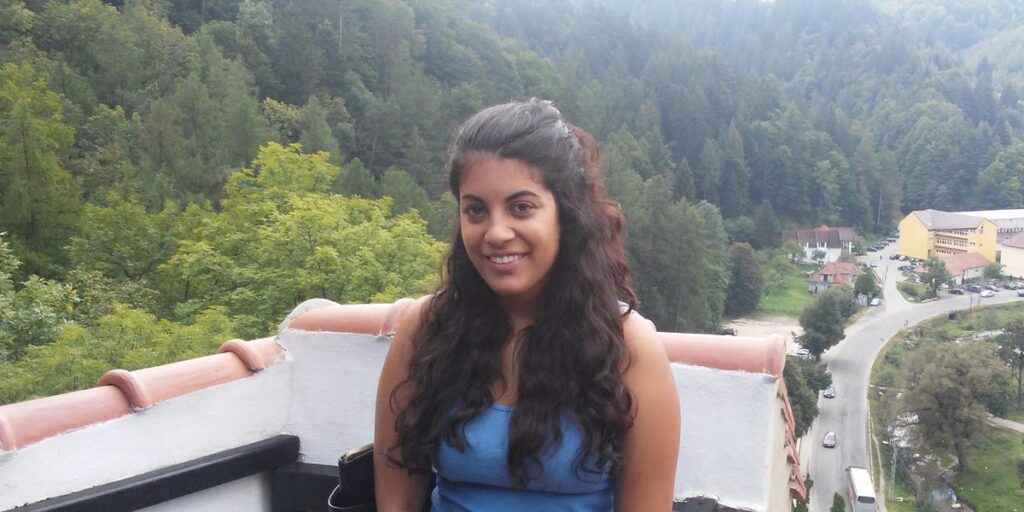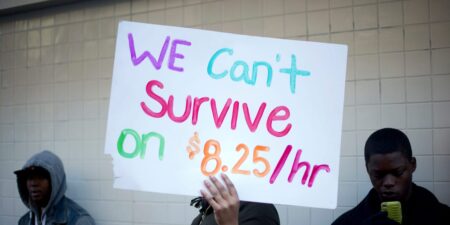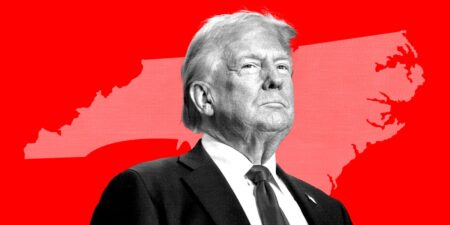- After graduating from college, Dalia Goldberg found a job working in marketing.
- Curious about what else was out there, she decided to look into moving abroad.
- In 2016, she sold everything and moved to Berlin. Now, she’s living happily in Spain.
I remember one freezing cold morning in 2015 when I was working at a marketing agency in Canada. That day, I had been tasked with editing a travel article about Málaga, Spain.
I had never even heard of Málaga before, but it sounded lovely. A freelancer had written the article using the knowledge they’d gained from living in Spain and running a travel blog. While I worked with freelance writers every day as part of my job, I had no idea what it was like to actually be one.
I couldn’t have imagined that nine years later, I would be living just a few hours’ drive from Málaga and working as a freelance writer. But the path to getting here was far from easy and straightforward. There were many challenges to overcome along the way, from immigration bureaucracy to financial struggles and personal hurdles.
In 2016, at 24, I quit my job and started a new adventure. I wanted to travel and be my own boss, like the freelancers I’d worked with.
Here are five lessons I’ve learned during my years abroad.
1. Plan ahead and expect the unexpected
At first, I wasn’t sure where I wanted to go. After researching immigration and practicalities, I decided on Berlin. I was used to living in a big city and wanted to be in a similar environment, and assumed Berlin would be an easy place to get residency and find a job.
Before heading to Germany, I scoured the internet for information on how to apply for visas. It all seemed simple and straightforward, and with my immigration experience from leaving the US for Canada, I thought I was all set.
But when I arrived, I realized things would be much harder than I thought. While in Canada I’d been able to apply for visas by mail, in Germany I had to visit the overcrowded immigration office — waiting hours in the early morning to try to get a walk-in slot, or weeks to secure an appointment online. The system was filled with Catch-22s: you needed a job to get a visa, a visa to get a job, and a job and a visa to secure any type of permanent housing.
I learned that it’s important to be well-prepared and do your research before moving abroad. There will always be things that research won’t prepare you for, so I’ve learned to expect the unexpected. Looking back, I would have told myself to save up as much money as possible, as it takes time to get settled when arriving in a new place.
2. Don’t be afraid to leave your comfort zone
Eventually, I got tired of struggling with bureaucracy and decided to leave Berlin. At this point, I’d begun working remotely, so I opted to travel around Europe for a while. I visited dozens of countries over the course of about a year and a half.
While this period was fun and rewarding, transitioning to a nomadic lifestyle was a challenge. I had to sell everything, proceeding to live out of a backpack with just a laptop and a few essentials.
Before the COVID-19 pandemic, remote work and the “digital nomad” movement weren’t very well-known — so explaining the decision to confused, worried friends and family wasn’t easy. Looking back, I’m happy that I got to see so many new places.
It can be hard to stand by your decisions, especially when others don’t seem to understand. But sometimes, life’s unexpected twists and turns can lead you in exciting directions.
During this trip, I learned that travel can be more than just fun: it can broaden your horizons and change the way you view the world.
3. Try to see the positives in everything you do
As I traveled through multiple countries, I was exposed to different cultures. This taught me there are dozens of ways to complete the same task.
Need a bus ticket in Greece? Obviously, you should visit a newsstand to buy one. Want to ride the subway? Well, it works differently in Istanbul, Budapest, and Bucharest. Every place I went, I needed to learn a new set of rules for daily life. While locals went about their day effortlessly, I often struggled with basic tasks.
Every country I visited offered its own set of beautiful discoveries and painful headaches. Eventually, I realized that no place was perfect — they were all just different.
You can adapt to a new country, learn the language, and discover the culture — but you can’t expect everything to run smoothly all the time. A positive attitude is the key to having a good experience.
4. Find a community
In late 2018, I stopped traveling and moved to Spain permanently. I found a fun new way to make friends — performing in an improv comedy group.
Finding a community of people I really connected with was game-changing for me. After all, integrating into a new country isn’t just about filling out forms and learning a language. It’s also about making friends, putting yourself out there, and finding your place in a new society.
Putting yourself out there is especially important for freelancers who work remotely. Even if you’re not an extrovert, it can get boring being at home every day. Finding a good café or coworking space can make all the difference.
5. Keep going, even when things feel impossible
The most important lesson I learned? Stick it out.
There were definitely many times when I considered going home. Being a freelancer has also been challenging at times. Although it’s been nice to have the freedom to work remotely on my own schedule, this has also meant I’ve had to figure out immigration, taxes, and other logistics without help from an employer.
Ultimately, though, I’m happy to have persevered. The experience helped me become more resilient and empathetic to the challenges of many other people who have more difficult circumstances than me.
If you’re planning a move abroad or a big life change, there are going to be moments when you want to quit. But by fighting through the difficulties and appreciating the good moments, you’ll definitely get a lot out of the experience.
Got a personal essay about moving abroad that you want to share? Get in touch with the editor: akarplus@businessinsider.com.
Read the full article here
















